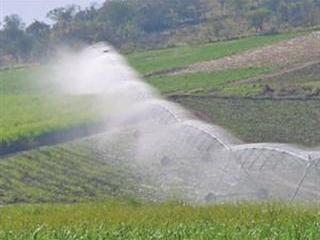
The unrest in the Western Cape has been viewed from many angles by a number of interest groups but two broad theories emerge: that the strikes are politically motivated and the unrest is a product of unfair and even inhumane labour practices in agriculture, including the underpayment of workers. What’s your view?
Broadly speaking, the key issue here is the one described by John Steinbeck in his novel The Grapes of Wrath. It’s the phenomenon of seasonal workers from areas of great poverty who become the most vulnerable members of the work force. They are exploited in the sense that they get paid the minimum wage, some of them less, which they can’t live on because the costs of food and energy have increased.
Workers from Lesotho are particularly vulnerable, and here’s how De Doorns ties in with Marikana – a healthy chunk of migrant workers in both places are from Lesotho. That said, much of the unrest has simply been a boiling over from that original catalyst, a case of several groups taking advantage of the situation to strike, often not for the same reasons. It’s a contagious strike, and as the contagion spread people forgot what it was originally about: seasonal workers can’t live on the money they earn. Xenophobia, service delivery and human conditions are also relevant issues.
Negotiations focused on farm worker salaries are currently underway. Heading into them, agricultural leaders were protesting that farmers could not afford a higher wage bill, whereas union leaders and farm worker organisation heads vowed they would not back down from a demand for R150 a day, more than double the current minimum wage.
You have been privy to these negotiations. Is it too early to forecast outcomes?
It is. I’m not sure how the impasse will be resolved. Possibly there will be an agreement on a new minimum wage for seasonal labour and that might be all. My real concern is that too many people are going to lose their jobs because of what has happened. After De Doorns, farmers are going to mechanise. There is no way we can hold this off anymore.
They’re going to use less labour, both permanent and seasonal. Some labourers will get more money but they’re probably going to miss the target they want and ultimately more people are actually going to be without jobs. So this is backwards movement, a negative-sum game for everyone. Our national goals for job creation and investment will be impeded.
Job losses don’t really fit in the government’s National Development Plan, which you worked on, envisioning the creation of a million new jobs in agriculture by 2030.
Research has been commissioned into the impact the farm strikes will have in terms of job losses. Consider for now this basic equation: currently agriculture has a wage bill of about R14 billion, split more or less equally between permanent and seasonal labour. If you assume that all seasonal labourers are paid the minimum wage (which is not true—some are paid less—but we’ll assume it for the purposes of the sum), and you then double the cost of this labour, it means that the agricultural wage bill could go beyond R20 billion.
The question is, where does this additional R6 billion or R7 billion come from, because that’s more than agriculture’s collective profitability. The simple answer is that it’s not possible to make the adjustment. Whatever the negotiating parties settle on will cost billions, which will have to be made back in the market. Farmers can then do one of two things: they can go with lower profitability, or they can pass the higher costs on to their consumers.
In the fruit industry, this means passing it on to the European consumer, who is currently under strain, and is not going to buy more fruit at higher prices. So, it will impact on our competitiveness against countries such as Chile, which are less sensitive to labour costs than we are as they are far more mechanised.
The real issue, the issue that should be under discussion at the moment, is how do we improve the viability of the agricultural sector in terms of profitability and growth, through investment-led expansion? Because, if you can make the Cape’s agricultural sector bigger, you can pay more salaries. Of course this would require serious vision and leadership. It does not depart from the need to assure humane working conditions on farms.
Many of the fruit farmers quoted in the media say their farms are as productive as they can be and that growth in their sectors hit a plateau some time back. Would growth in mature sectors not be a struggle for even the most visionary of leaders?
I’ve had farmers tell me that they can’t grow any bigger because of water restraints, access to land restraints, markets and so on but I don’t believe there’s no growing left to do. Throughout the history of agriculture, it has been technical shifts that bring about expansions. It’s not just about getting new land into production. For us, the technical shifts we should be looking at are in the realm of new varieties, as well as increased water use efficiency. Only 15% of the water from South African farm dams currently gets to the roots of a plant, the rest is lost through bad management, evaporation, leakage and so on.
Labour productivity is another area in which great advances are yet to be made, and then there’s the potential of the former homelands to be unlocked. Lastly, there is so much work to be done in respect of our expansion into Africa. We could, in a programmatic way, be moving production beyond our borders and consolidating processing industries and markets here. This requires leadership, partnerships within SADC (Southern African Development Community) and much strategic thinking.
You said there are advances to be made in labour productivity. Wouldn’t this result in more job losses and further labour-related unrest in rural areas?
When we did the National Development Plan, I had some researchers look at the effect that increased productivity would have on the economy. They came back with some interesting figures. Generally speaking, the productivity of our semi-skilled and unskilled labour is a third of what it is in India and China. If we could treble labour productivity, the long- term result would not be job losses but more jobs. In fact, the prediction was that it would reduce unemployment from 25% to 17%.
It sounds counter-intuitive, but if you invest in the productivity of people you get more output for the same unit of input which results in a surplus generated at the financial level. This surplus is likely to be reinvested in the business. So, with increased productivity, businesses will grow and can reinvest in themselves. This is called direct domestic investment.
Because money follows opportunity, foreign direct investment won’t be far behind. When foreign direct investment increases, there’s more money to grow the economy, thus greater job creation and less unemployment. We should have a much more concerted effort with respect to labour productivity.
What will it take to bring about this concerted effort? In the wake of the farm strikes, strategists like Clem Sunter have spoken of the need for a Codesa on economic freedom (with reference to the multi-party negotiations that paved the way to SA’s first democratic election). Is that the order of deliberation required to address agriculture’s problems?
I’m not sure it’s a Codesa type of engagement we need, but we need a Codesa type of outcome, whatever we choose to do. I wrote a submission to the National Development Plan which basically asks the sector to create the jobs we so desperately need first, and then get around to everything else. We haven’t been going in this direction though, and what is happening now actually represents a movement in a very different direction.
Farmers look at what is happening and say, “I’m not going to employ people and risk having this hassle of labour unrest”, especially when labour productivity is not where it should be. Many farmers pay considerably more than the minimum wage requirement, and have moral issues with those who pay R70 a day, knowing they can pay more.
In terms of the engagement needed to grow agriculture, the country’s leadership should say exactly what it is they expect the agricultural sector to mean to the country and the economy. They need to state clearly what they, as government, are prepared to put on the table to make this happen. Of course, there’s much that government is already doing to advance the agricultural sector, but it just doesn’t come together in a systematic way, and we desperately need that to happen. The present situation discourages labour absorbing investment while job creation is such a key imperative for the country.
Could you remind us what government does for agriculture?
Well, for starters, it spends R1 billion a year on agricultural research and development through the Agricultural Research Council. It spends millions on training colleges and extension officers, billions on land reform, and yet these mechanisms don’t seem to be, collectively or separately, achieving the desired impact.
We need existing systems to work more effectively. The National Development Plan is there as the new blueprint for getting to where we want to be, but it requires leadership.
A major stumbling block appears to be the fact that commercial farmers are on the wrong side of popular and political sentiment.
Perhaps, but if you privately ask any person, no matter how rich or poor they are, “would you like a farmer’s life?” they will invariably say yes. There’s something in human nature that aspires towards it.
Take away some of the bad things that have happened in agriculture, such as below minimum wage payments and instances of inhumane treatment, and it is entirely possible that the image of farmers will be fixed. The extent of the improvement of this image depends on what farmers do, in their rural communities, for the next generation. Just helping to educate black kids in their communities will make an enormous difference.
I think there is enough goodwill and sentiment out there. We lack the initiatives to unlock this on a grand scale, but even now I see some farm workers treated far better than their urban counterparts. I see computer rooms on farms and the children of farm workers employed in skilled positions. We need to be careful not to throw the baby out with the bathwater, because there’s a lot of good happening that is not being told.













